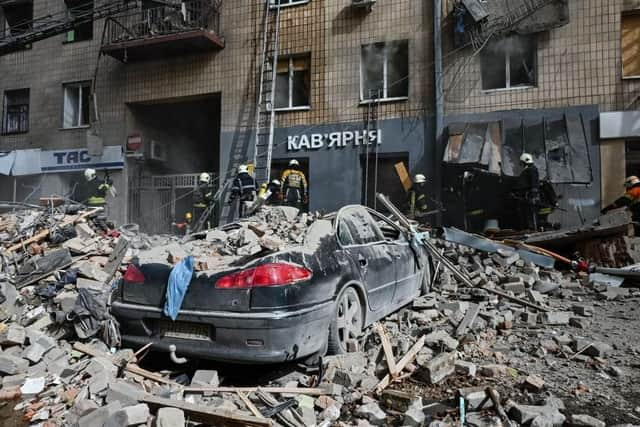Andrew Lewer MP opinion: We must learn lessons from Afghanistan to resolve Ukraine conflict
and live on Freeview channel 276
My office is still dealing with the after-effects of the calamitous evacuation from Afghanistan.
A year on, we still have British Nationals and former employees of British organisations, including those connected to the military, trapped there.
Advertisement
Hide AdAdvertisement
Hide AdThe Afghan economy has collapsed, Al Qaeda is back in town and operating openly. Witness the drone strike against Al Qaeda leader Aman al Zawahiri a few weeks ago in Kabul.


There are an estimated 400 ISIS fighters operating in the country too and it feels like we are back where we started from over twenty years ago.
Why? There a saying attributed to the Taliban: “you have the watches, but we have the time.” Key western political leaders lacked the resolve to continue; the Taliban knew that and cut its strategic cloth accordingly.
Now we are dealing with another conflict, much closer to home and with even bigger stakes.
Advertisement
Hide AdAdvertisement
Hide AdThe Russian invasion of Ukraine has been nothing less than a calamity for Russia. Poor Russian tactics combined with a ferocious defence by Ukraine and a largely strong and resolute response from the West have stripped Putin’s strategic goals from him.
After six months, the Russian army has been degraded to the point that it has lost the ability to conduct any offensive operations. It has sustained eye-watering loses; an estimated 80,000 are either dead, injured, captured, or have deserted. This is over half their entire committed force.
Materially, it has lost almost 1,000 tanks, 1,700 armoured vehicles and over 100 jets and helicopters. Now they are deploying ancient T62/T64 tanks, built in the 1960s, whilst the West has been rearming and supplying the Ukrainians with powerful, up-to-date weaponry which is having a positive effect on the battlefield and behind it. Britain has led from the front in defence and support of Ukraine.
But Ukraine’s armed forces have suffered too. The extent of their loses is not wholly clear though it is substantial. Notwithstanding uncertainty over capacity Ukraine is proceeding with a bold counter-offensive around Kherson. Offensive operations are more costly than defensive ones which is why, as a rule of thumb, armies try to rely on a ratio of at least three to one, but factors such as quality of equipment and, maybe most of all, morale can tilt that profoundly.
Advertisement
Hide AdAdvertisement
Hide AdEven with successes in Kherson, it is possible we may be entering some sort of larger scale stalemate, which is why I hark back to the lesson of Afghanistan. Napoleon once said war is about time and territory. He could always regain territory, but never time.
Putin’s calculus is that over time the resolve in the West will crack and force a negotiated peace that he could live with. He is using gas and oil as a weapon and it is hurting us, not just in a geo-political way, but in a way with painful effects on people’s daily lives.
Therefore, we – and some of our western allies in particular – need to learn the lesson of Afghanistan.
If we do not have the resolve to stay tough when the going gets tough then we all lose, not just Ukraine.
That is why future peace talks must be on terms the Ukrainians find acceptable.